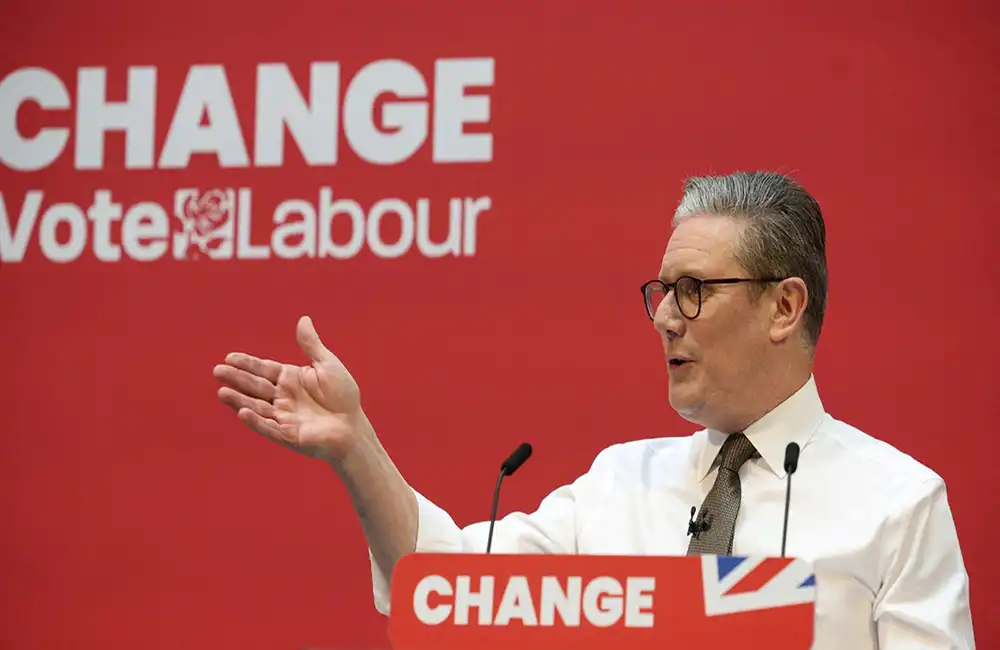UK exporters encounter new complexities of unusual scale due to President Donald Trump’s administration actions which build upon existing global trade uncertainties.
UK Export Finance (UKEF) reports that the difficulties caused by rising U.S. tariffs have reached levels that match or exceed those seen during the COVID-19 pandemic. The introduction of sweeping tariffs at 10% for most UK imports along with higher rates up to 25% on steel, aluminium and automobiles has transformed the economic environment for British businesses while creating apprehension among global investors.
This analysis examines both economic consequences and investment opportunities resulting from current tariff policies and provides valuable information for UK businesses as well as financial analysts and investors who need to comprehend the full scope of trade dispute impacts.
Impact on UK Exporters
Key Sectors in Jeopardy
- Automotive Industry: A 25% tariff on imported vehicles has disrupted sales for Jaguar Land Rover and Aston Martin. UK-made vehicles face increased price competition, reducing order volumes.
- Steel and Aluminium: British steel manufacturers, already under pressure, have scaled down output. The 25% tariff forces smaller players to reduce capacity.
- Pharmaceuticals: Despite regulated pricing, tariffs on ancillary materials and equipment are squeezing profit margins.
- Food & Drink: Scotch whisky, cheese and confectionery face major financial setbacks due to increased costs in their largest export market.
These combined sectoral disruptions are eroding revenue forecasts and increasing market volatility across core industries.
UK Government Response
Financial Support via UKEF
UKEF launched a £20 billion funding programme, allocating £10 billion to the most affected sectors. The initiative provides guarantees, loans and insurance to ensure cash flow continuity for struggling exporters.
Localised Assistance
Regional agents are deployed to offer on-the-ground support, helping firms access funding mechanisms rapidly and stabilise operations.
Ongoing Trade Talks
Diplomatic negotiations with the U.S. aim to resolve the dispute. While progress remains limited, the government continues to seek long-term resolution and improved bilateral trade conditions.
Investment Considerations
Risks to Consider
- Exposure to export-dependent UK companies could result in portfolio losses due to shrinking margins and suppressed earnings.
- ETFs focused on FTSE 250 or mid-cap exporters may see underperformance amid tariff-driven volatility.
- Strained supply chains and reduced U.S. market access pose additional business risks.
Opportunities Amidst Disruption
- Supply chain innovation and diversification could offer growth for logistics and fintech providers supporting digital trade facilitation.
- British exporters expanding into new non-U.S. markets could become breakout performers as they adapt to reduced transatlantic demand.
Monitoring Trade Developments is Essential
Ongoing shifts in trade regulation necessitate agility from both businesses and investors. Decision-makers must remain informed about the progress of UK-U.S. negotiations and be prepared to pivot quickly in response to regulatory or financial changes.
Final Thoughts
The surge in U.S. tariffs is reshaping the outlook for UK exporters. However, government support and proactive strategy adjustments offer a path forward. Investors should carefully analyse affected sectors, diversify their holdings and remain responsive to a volatile trade landscape. For UK exporters, adaptability and innovation will be key to navigating this challenging climate.




















